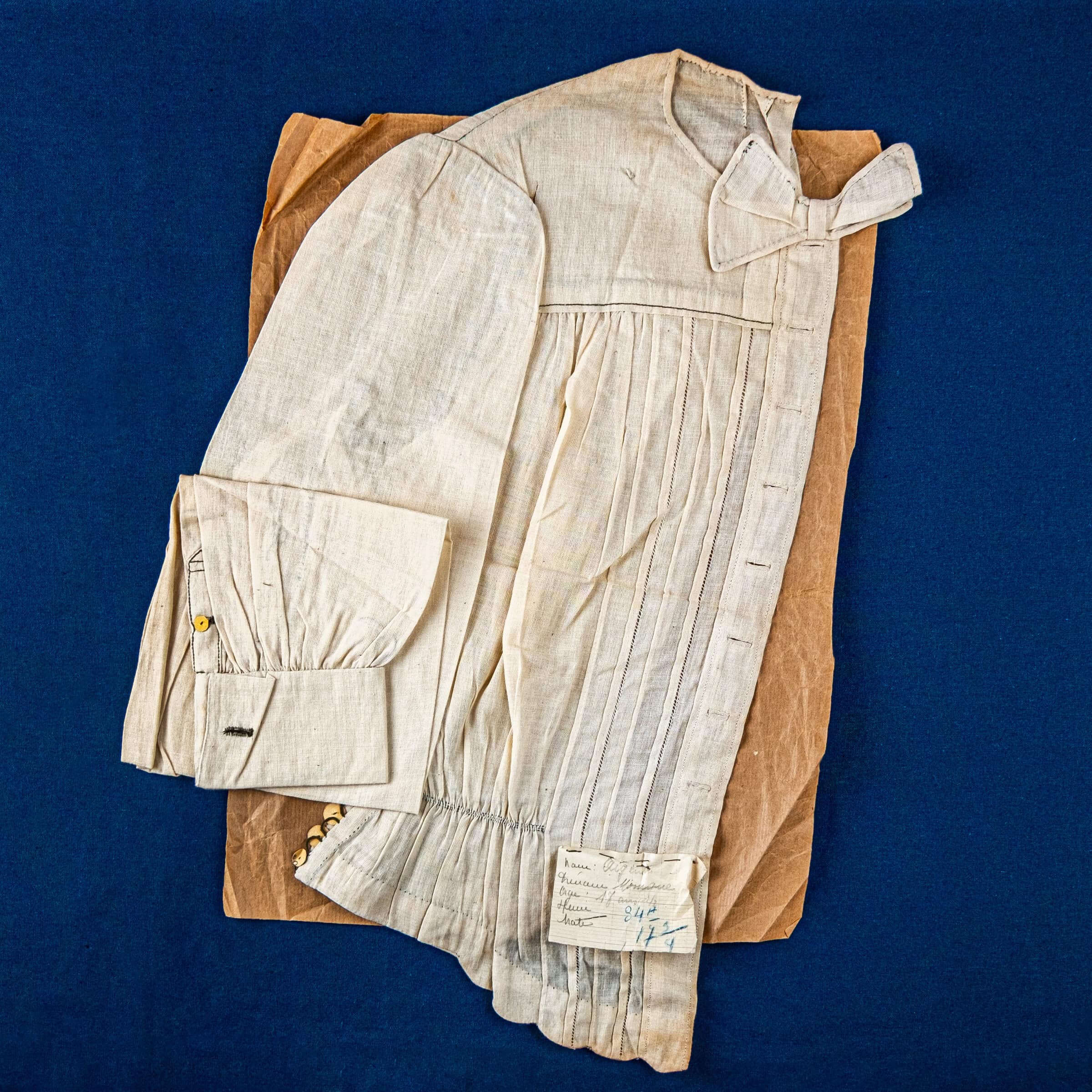
In the Fall of 1940, 17-year-old Monique Argent sat in a quiet exam hall filled with her peers. Amidst the fresh political upheaval of the German occupation of France, the French schoolgirl would have spent the previous months diligently preparing for the day of the Brevet Elementaire (Primary Education Certificate), just as students had done for the past 130 years since its establishment in 1803. Her demonstrated knowledge of literature, history, mathematics, science, and sewing would determine her acceptance into an École Normale (French teacher training college), hopefully affording her a sense of certainty about her future in a time of instability.
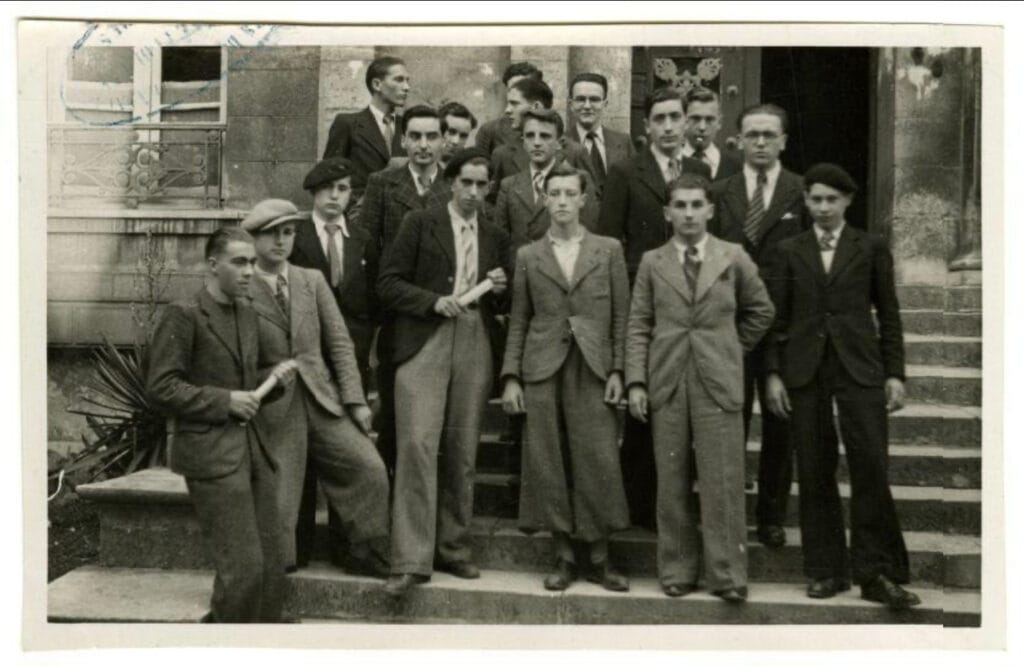
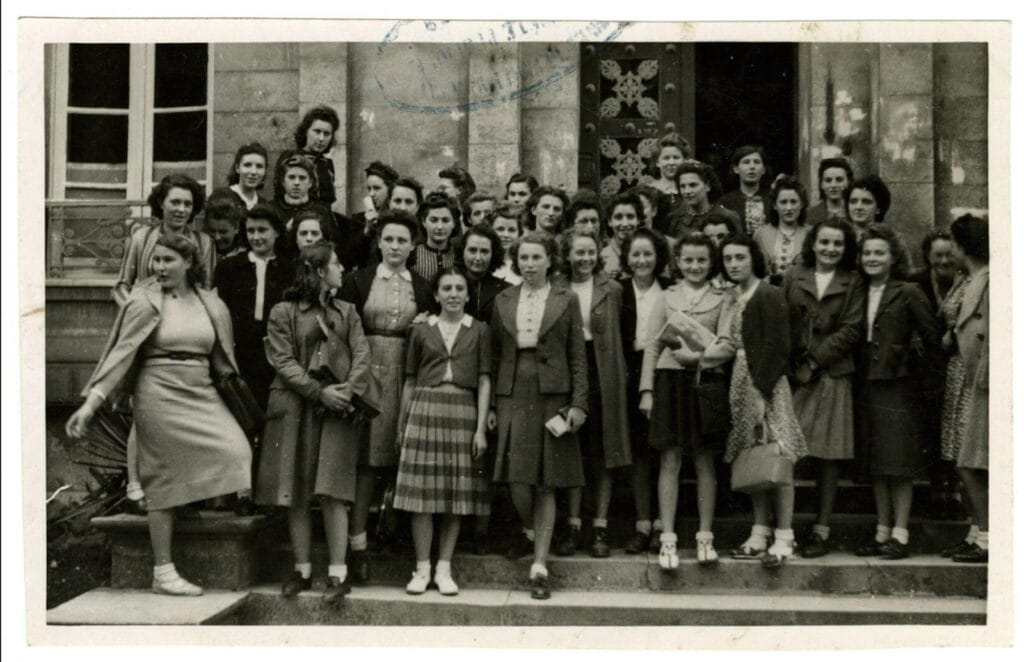
The “Travaille à l’aiguille” or needlework section was a typical component of the Brevet Elementaire, where aspiring teachers demonstrated their proficiency in sewing. The final product was a variety of different sewing construction samples pieced onto sheets of paper. There are 15 samples in Monique’s portfolio: a demie blouse adorned with pintucks, pleats, and a delicate bow at the collar; swatches filled with an array of hand stitches, seams, hems, and gathers; a set of 3 cuffs fastened with cut paper buttons and corresponding button holes; and samples of decorative embroidery, drawnwork, and cutwork. The samples are dated late October 1940 through early January 1941 and are marked with written annotations and grades from an exam proctor. Each individual sample is graded out of 20. Although Monique received notes to tidy up edges, adjust the size of some button holes, and neaten her running stitches, her diligent work earned her few deductions and the note of “Assez bon travail” (satisfactory work)–an imperfect, but above average passing grade.
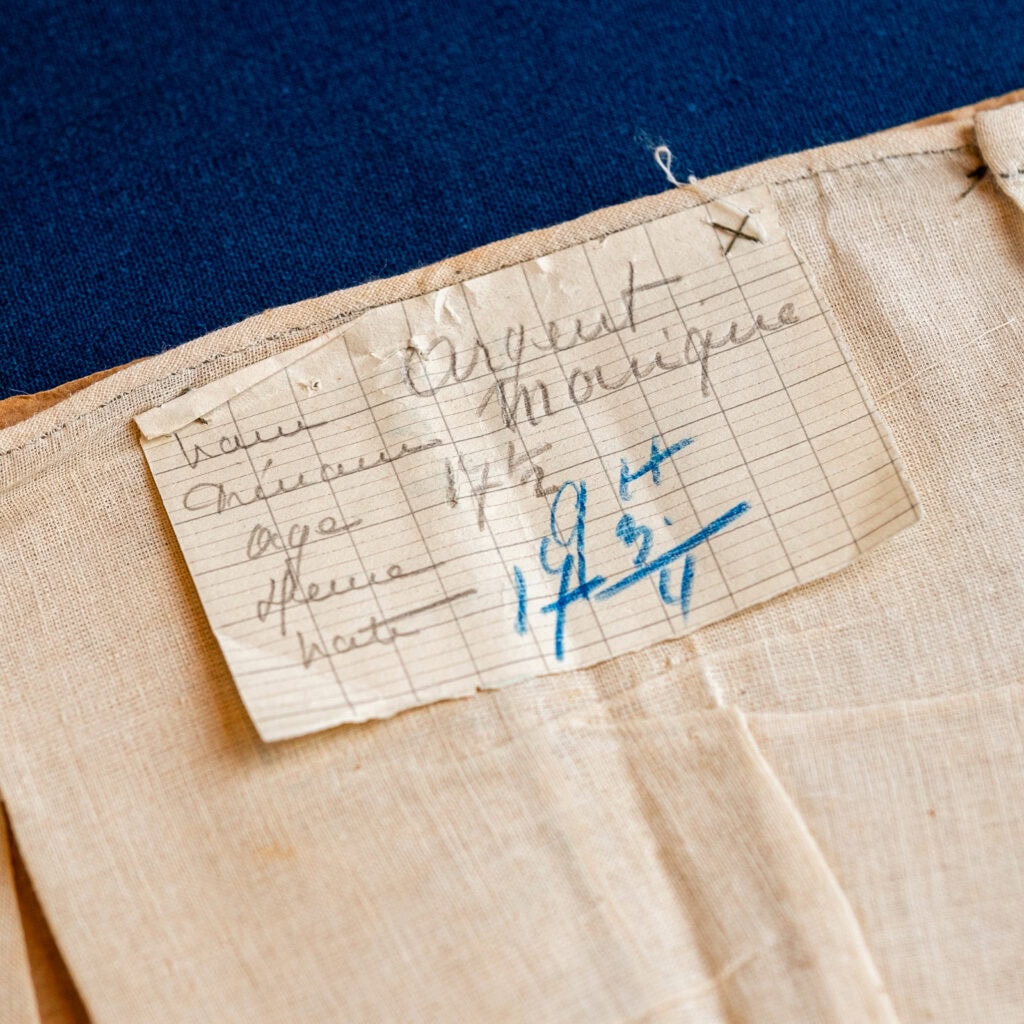

Despite Monique’s success on the exam, the future which she had been preparing for remained unclear. The Vichy Regime of Nazi collaborators had come into power just a few months before Monique sat for this test. Écoles Normales were under scrutiny by these authoritarian governments, as they had been established after the French Revolution and regarded as longstanding symbols of the values and preservation of the French Republic. The schools were seen as “evil seminars of democracy” whose anticlericalism and openness to progressive ideology was a threat to the future envisioned by French conservatives. On September 18th, 1940, just three months after coming into power, the Vichy Regime announced the closing of all Écoles Normales by the 1st of October of the following year. This immediate demonization and restructuring of the education system is a common move by reactionary governments, in an effort to ensure that those in power can dictate the learning and values to be instilled in the youth.
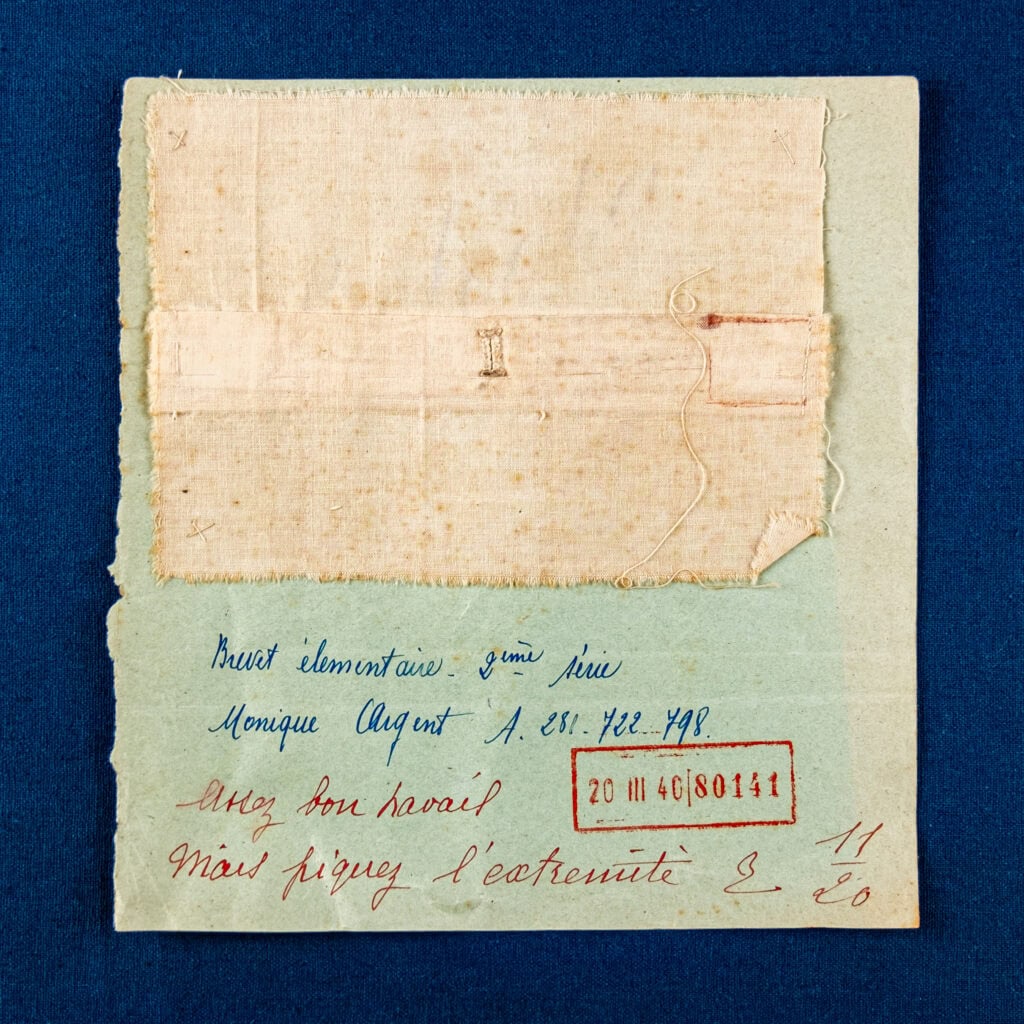
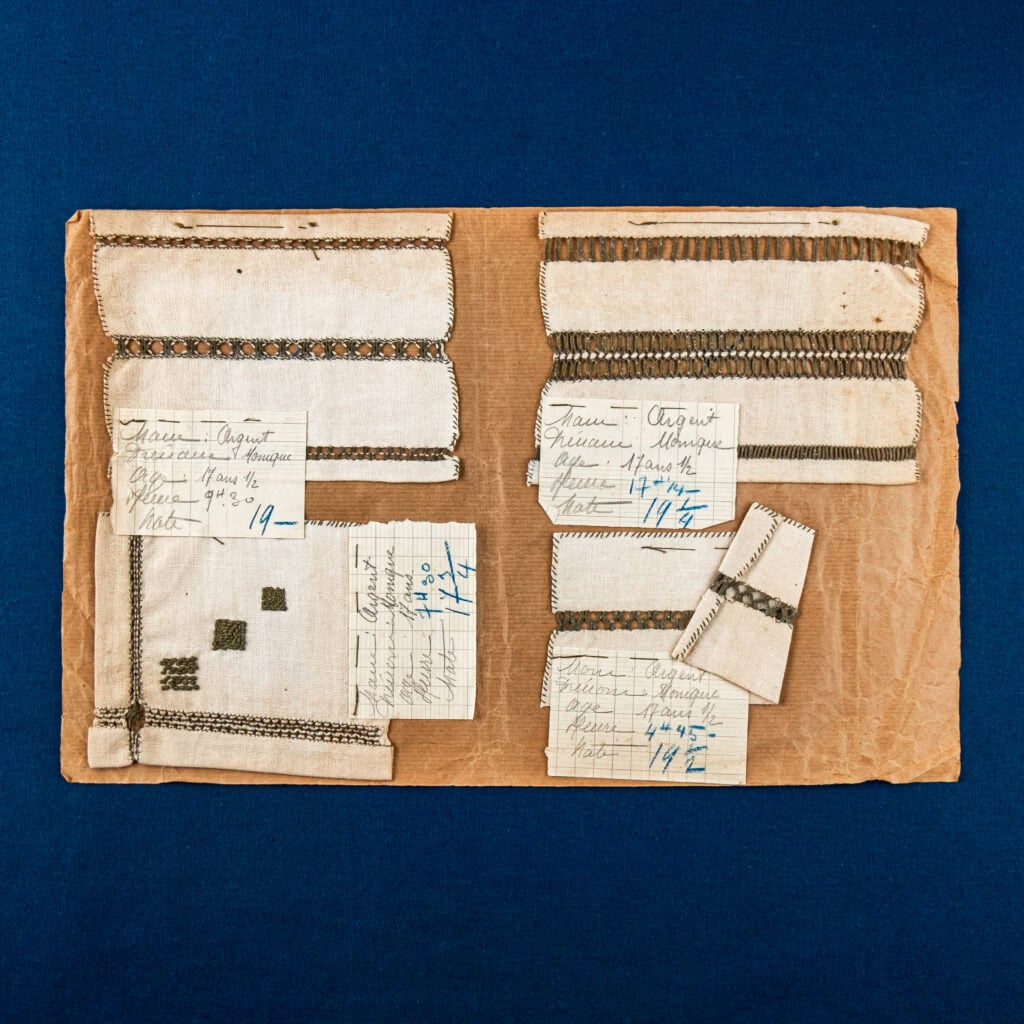
It’s unclear exactly why the exam was still being conducted two months after the Vichy Regime’s suppression of teacher training schools. I must admit that the rapid structural change that Monique lived through in 1940, the dizzying changes wrought by a hostile occupation determined to redefine the future of France and its republican values while instilling fear and docility among its citizens, feels eerily familiar. Perhaps the work of Monique and other teenagers who sat for the exam can simply be attributed to the uncertainty of the era, a stitched manifestation of her disbelief during the period between the Regime’s declaration of September 1940 and the deadline of October 1941, when the teaching schools were set to be closed and turned into Vocational Training Institutes. In this sense, Monique’s careful needlework can be looked at as a kind of refusal, with every pintuck and paper button holding hope for the her own future and for the future of France, as she continues on her path to serve as an educator in a secular system in which intellectual inquiry, free of the Regime’s reactionary influence, could thrive.
REFERENCES
Barral, Joleaud. Manuel Du Brevet Élémentaire à l’usage Des Aspirants et Aspirantes à Cet Examen. Librairies-Imprimeries Réunies, 1894.
Calcagni, Stéphanie. Éducation et enseignement sous le régime de Vichy, 1940-1944. Centre de recherche en éducation de Nantes. 2013.
Lang,Vincent. Le Pré Recrutement Des Instituteurs de L’Enseignement Public. Centre de recherche en éducation de Nantes. 2006.
Revue Pédagogique. L’enseignement Du Français. Résultats Obtenus Au Certificat d’études Primaires, Au Brevet Élémentaire et Au Brevet Supérieur En Juillet 1924, Librairie Delagrave, Paris, 1925.
Toussant, Daniel. Un examen pour les instituteurs : le brevet de capacité de l’instruction primaire dans le département de la Somme (1833-1880). Histoire De L’Éducation. 2002.
